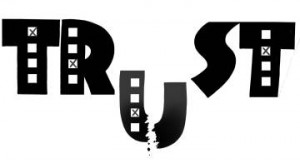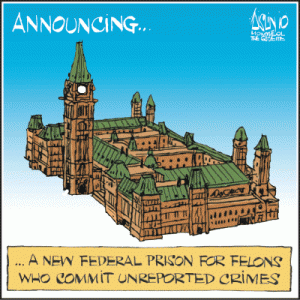- Cyberpresse: Recensement: Ottawa ajoute deux questions sur les langues officielles
- Globe and Mail: Tories make language concession on census
- Inside Halton: Utter non-census
- CTV News: Conservatives make changes to short-form census
- Planetizen: Canadian Politicans: Come to Your Census!
- Worthwhile Canadian Initiative: Unpaid work and the census: who cares?
- Telegraph Journal: Why won’t feds count at-home mothers?
- Globe and Mail: Sense still incomplete on the census: Clement is giving bad information to support his plan for bad-quality data. And on language, he admitted he was wrong
- Orangeville: Long-form census needed for a well-informed society
- The Amherst Citizen: In defense of the longform census
- Toronto Sun: Dumb gets dumber: Arbitrary federal deadline for stimulus funding makes absolutely no sense
- Liberal Party: Liberal Party in Canada Happy with Fed. Court’s Judgment on Census
- Caledon Enterprise: Town opposes census scrap
- National Post: Tories tweak census after language protest
- StatCan Media Advisory: Media advisory: 2011 Census
- The Province: The census mess: Clement blinks (sort of); critics want more
- David Akin: From the desk of Tony Clement. Re: Census
- Canada news Brief: Tories tweak short-form census in wake of language protest
- Global Winnipeg: Federal Court to fast-track census challenge
- Global Winnipeg: Clement tidied up census message for committee hearings, documents show
- CBC News: Census changes: The statement
- Vancouver Sun: Census change aims to keep it legal Language questions to be included on mandatory survey, Clement says
- CBC News: UPDATED – CensusWatch: Don’t mess with the francophonie. (Or the Acadians)
- Times Transcript: Now cometh the strong men
- The Melfort Journal: Voters voices matter in federal politics
- Globe and Mail Exclusive Commentary: Information must be Canada’s bedrock
- The Toronto Star: Tories twisted census findings: memos
- the Calgary Herald: The census scandal: What did they know…and when did they know it?
- Macleans: Worthwhile census submissions (III)
- 570 news: Region objects to cancelling long form census
- The Barrie Examiner: In short, the long-form census is valuable
- CBC News: Orders of the Day – Oh no! We’re running out of clever census-related puns, but not census-related news!
- National Post: Tasha Kheiriddin: The sad tale of Tony Clement
- Winnipeg Free Press: Group trying to kill Tory census changes faces Wednesday showdown in court
- Macleans: Worthwhile census submissions
- Toronto Sun: French language group to get ruling on census hearing
- Ottawa Citizen: Sharks swimming
- Globe and Mail: Court to fast-track census challenge
- CBC News: Census court challenge to be heard in Sept.
- CBC News: Census Document Dump: Yes, MINO!
- Globe and Mail: Hugh Segal If we let partisanship steer us, we’re in for a train wreck Conservative Senator Hugh Segal. The basic social fabric that constitutes Canada will be on the table in 36 months
You are currently browsing the archive for the infrastructure category.
- CBC news: StatsCan warned of poor census response rate
- Yahoo news: Feds tried to shape StatsCan census message
- Rabble.ca: The long shadow of the long census cancellation: A politician’s nightmare
- Canadian Press: StatsCan, feds at odds over messages around voluntary census: documents
- From the Globe and Mail:
- The Toronto Star: Clement misled Canadians on census: secret documents
- Post Media News: Clement tidied up census message for committee hearings, documents show
- CBC: Census Document Dump: Behind the scenes of a most unexpected public relations crisis
- The Globe and Mail: Statscan chief disagreed with Tory census changes, documents confirm
- The Globe and Mail: We still have time to reverse the census decision
- Yahoo News: Bloc: No census form? Well, then, no passport
- Globe and Mail: Use passport or EI as census leverage, Duceppe says
Bloc Québécois Leader suggests alternatives to jail term in bid to reach compromise over PM’s decision to scrap mandatory long form - Video: Evan Solomon CBC Inteview with Munir Sheikh
- Macleans: The question of civic duty
- Toronto Star: Bloc’s census proposal: Fill out long form or lose passport
- CTV news: Bloc census idea: Don’t complete the form? No passport
- Global National News Clip and article
- Winnipeg Free Press: StatsCan, feds at odds over messages around voluntary census: documents
- Orillia’s Packet ad Times: PM creates very issues he dismisses as folly
- The Gazette: Lawyer balks at request to speed up census court case
- Times and Transcript: Dieppe council to vote on census position
- Financial Post Comments: FP Letters: Voluntary census risks trivialized
- The Mowat Centre: The Census: A Compromise and the Seeds of Long-Term Change
- Planet S: Eff The Facts Why the Tories sabotaged the census
I contacted the Clerks office to find these documents today. Here is the link to the official transcript from the 40th PARLIAMENT, 3rd SESSION Standing Committee on Industry, Science and Technology EVIDENCE Tuesday, July 27, 2010, Meeting 29. I highly recommend that folks download documents from here before they disappear or are modified. Remember the consultation gone bad!
Also, here are the MINUTES OF PROCEEDINGS, Meeting No. 29 Tuesday, July 27, 2010 in which the following motions appears:
1) That pursuant to Standing Order 108 and the committee’s study of the long-form portion of the Census, this Committee notes that, the long-form census is a vital tool for good policy-making and the decision to amend it was short-sighted and carried out without consultation. Therefore, the government should immediately reinstate the manditory nature of the long-form census. And, that this committee tables this report upon resumption of Parliament.
2) Dan McTeague moved, — The committee request under the authority of Standing Order 108 in relation to its study on the long-form portion of the Census, that the Minister table all documents and emails between Statistics Canada, the Privy Council Office and the Minister of Industry`s office on changes to the 2011 census. The committee also requests the analysis section of the Memorandum to Cabinet. And requests that said material be delivered to the committee within 5 days.
I called the Chair’s office, Michael D.Chong, Conservative MP Wellington – Halton Hills (613) 992-4179, and spoke to an official on the phone who explained that motions are binding and at times it is not unusual for documents to be late, as was the case here. The Documents that were requested were delivered to the members of the committee. The documents are Memorandum to Cabinet and we citizens are not privy to those.
Also, if the government of the day does not comply with committee motions, there are a number of actions that can be taken such as censure in the house or a consideration of contempt of parliament. These seem like compelling actions. I will someday read the House of Commons Practical Guide to Committees to see if there are any other procedural things of note.
Further, reports are produced from committee which include non binding recommendations. And the first part of this motion is the substance of the report – verbatum – that will be submitted to parliament when it resumes. It will be up to us to ensure that this one is.
Here is the INDU Committee Contact Information. The site is designed to make it near impossible to find information, but the clerk might be able to help you find what you need:
Michelle Tittley
Clerk of the Committee
Tel.: 613-947-1971
Sixth Floor, 131 Queen Street
House of Commons
Ottawa ON K1A 0A6
Canada
Fax: 613-996-1626
E-mail: INDU@parl.gc.ca
- Globe and Mail: We still have time to reverse the census decision
- Worthwhile Canadian Initiative: Clementonomics
- Global News: Harper backs census form decision
- National Post: Marc Garneau: The long-form census is your civic duty
- Globe and Mail: Stephen Harper’s summer … so far
- Toronto Star: Census change devalues women’s unpaid work
- The Toronto Star: Paul Martin accuses Tories of ‘dumbing down’ Canada
- Le Devoir: Revue de presse – L’art de se tirer dans le pied
- The Toronto Star: Different takes on census
- The Telegraphy Journal: Census decision is a symptom
- Rabble.ca: No one should be surprised, let alone shocked, by PM’s census policy
- Cyberpresse: Les conservateurs se tirent dans le pied
- Cyberpresse: Conseil de la fédération: les premiers ministres ne s’entendent pas sur tout
- Radio Canada: Division au sujet du recensement
- Globe and Mail: Stockwell Day’s prisonyard of dreams
- Count Me In / Compte sur Moi RSS Feeds
- Hill Times: Census could spark election if polling trends continue into fall’What’s the downside for the opposition? If they hold up, they’ll pull the plug for sure,’ says EKOS’ Frank Graves
- Macleans: CensusWatch: Always make sure the right hand knows what the left hand is doing …
- Macleans: Why Stephen Harper thinks he’s smarter than the experts For the government relying on academic research is bad politics
- News1130: Axing long-form census does not resonate with Metro Vancouver Board Important data out of reach
- The Intelligencer: Killing census part of plan to keep us ill informed
- National Post: Stephen Gordon: Why libertarians can’t possibly support the census decision
- CBC: Census jail threats not ‘appropriate’: Harper
- Globe and Mail: Former Statscan chief makes last-ditch plea to save census Globe and Mail: Senseless census argument number four
- Macleans: Why Stephen Harper thinks he’s smarter than the experts On everything from the census to climate change, taxation and crime Why Stephen Harper thinks he’s smarter than the experts
- CBC News: CensusWatch: Always make sure the right hand knows what the left hand is doing …
- Rabble.ca: No one should be surprised, let alone shocked, by PM’s census policy
- Brampton Guardian: Census made sense
- The Vancouver Sun: Census fight kills woman’s fight to recognize unpaid housework
- Radio Canada: La prison n’est pas appropriée, dit Harper
- Globe and Mail: An alternative guide to the new census
- The Globe and Mail: Harper breaks silence on census, says jail threats are inappropriate
- National Post: Finding quarrel in a straw
- Globe and Mail: The long form will return. Voters won’t
- Ottawa Citizen: Stephen Harper’s magical departure from reality
- This Magazine: Margin of Error #5: Don’t just preserve the long-form census. Set its data free
- Cyberpresse: Harper ne veut pas d’élections à l’automne
- CBC news: PM touts economy as census furor ignored
- Radio Canada: Harper rebrassera les cartes
- Globe and Mail: NB Premier lashes out at Harper government over census comments
- The Toronto Star: Clement mocks critics of Tories’ census change
- Chronicle Herald: Long-form census on way out?
- Globe and Mail: Why Harper wasn’t asked about census
- Le Devoir: Retrait du formulaire long du recensement – Des solutions d’ailleurs déjà tentées ici Lettre à monsieur Ian McKinnon, président du Comité national de la statistique
- Cyberpresse: Hallucinations
- The Toronto Star: Goar: Separating fact from myth in the census saga
- The Toronto Star: Hébert: Harper burning his bridges
- The Globe and Mail: NB premier calls for more federal stimulus, questions census decision New Brunswick’s Shawn Graham says spending helped Canada weather recession, should be extended to avoid second dip
- Time Colonist: Stubborn stance on census foolish
- Ottawa Citizen: Stephen Harper’s magical departure from reality
- Globe and Mail: Parking woes top census fury, Jack Layton says
- The Province: Port Coquitlam woman’s fight to recognize unpaid housework lost in census changes
- Toronto Star: Premiers set nation’s agenda
- CTV: Premiers discussing thorny census issue: Selinger
- Toronto Star: Hébert: Harper burning his bridges
Now it is personal, do the tories hate data lovers?:
“Gordon O’Connor, the Conservative party whip who ensures MPs stay on message, said the census is “not an issue that people are going to live and die on” and that it’s mainly a big issue for the groups that want “free data” and the media who want something to write about during the summer” Montreal Gazette
- Ottawa Citizen: Liberals push for more census debate as Tories miss document deadline
- The Vancouver Sun: Harper sidesteps controversies as Tories begin party retreat
- Le Devoir: Pourquoi se priver de précieuses données?
- Toronto Star: Tories ignoring order to produce census files, Liberals say
- The Mark: No statistical gathering would allow the Conservatives to make bold decisions based solely on ideology.
- Ottawa Citizen: Where facts are the weapon of choice
- Times Colonist: Harper’s one-man rule wreaking havoc
- The Montreal Gazette: Census fracas in a sense, makes no sense, say Tories
- Bumper Sticker: I like it long!
- Toronto Star: Scrapping census will hurt Ontario’s recovery, Hoskins says
- The Mowat Centre: The Census: A Compromise and the Seeds of Long-Term Change
- Reuters: Canadian government says no to census compromise
- The Mowat Centre: Ideology, Autonomy and the Census
- Rabble.ca: Alice Klein NGOs risk all in standoff with Harper over civil society crackdown
- Huffington Post: Canada Channels Michele Bachmann
- Worthwhile Canadian Initiative: The census and libertarians, bis
- Le Devoir: Recensement: Ottawa persiste Stockwell Day s’oppose à toute sanction contre les citoyens négligents
- Globe and Mail: What’s Harper’s take on census? He won’t say just yet
- Le Devoir: Gros Mensonge
- Radio Canada: Division au sujet du recensement
- The Barrie Examiner: Census plan makes sense: MP
- CBC: Catholic Bishops
- Inside Halton: Town council wants long form census to continue
- CTV: Group launches legal attack on Tories’ census move
- Toronto Sun: What’s really in the census?
- Toronto Sun: Premiers may clash over fed stimulus cash
- The Record: Metro Vancouver wants the long form census mandatory
- CTV News: Justice minister defends Day’s unreported crimes claim
“We don’t govern on the basis of statistics,” Nicholson said. “We govern on the basis of what we hear from the public and what law enforcement agencies tell us. That has not changed in the four and a half years we’ve been in government.”
- Globe and Mail: Injunction could delay voluntary census
- Yahoo News: Census: All-out legal attack launched
- Globe and Mail: Census critics just want easy ride, Clement says Opponents of voluntary survey ‘got good, quality data and the government of Canada was the heavy,’ minister asserts
- The Star: Travers: Tories enlist imaginary enemies
- David Akin: MPs get letters: Stockwell Day’s pushback on census jumps more than 200 per cent!!
- Cnews: Former StatsCan head speaks for first time
- The Northern Harrier: The secret is out – Tories don’t use statistics and Why the Census is mandatory
- Macleans: Census compromise? Minister, opposition consider options
- BC Local News: Making census voluntary protects our rights
- CBC News: Lawsuit filed against census changes
Lots of cool videos if you search: Canada Census on youtube!
Action
CBC Question of the Day:
And of course another song! (A la Johnny Cash)
Census Prison
(with sincere apologies to Johnny Cash)
I hear the census taker
He’s coming down the hall
He’s gonna ask me questions
That I won’t like at allSo I’m stuck inside this prison
No-one to post my bail
That damn form was too intrusive
So now I’m stuck in jailIt could have been San Quentin
Or maybe Alcatraz
I landed in the Don Jail
A sittin’ on my assCause I skipped a census question,
Just because I could.
Then the census Mounties caught me
And locked me up for good.Oh I hate that long form census
I’ll curse it till I die
Please Mr. Harper save me,
I promise I will tryAnd I’ll do my civic duty
Once every twenty-five years.
I’ll fill out that long form census,
Oh momma, dry your tears!
- Toronto Sun: Census plan continues to dog Harper
- David Akin On the Hill: MPs get letters: Conservative supporter ready to quit over census decision
- Globe and Mail: Canada’s stat crunchers join census fight ‘The world, in fact, has spoken on this issue,’ says Statistical Society of Canada
- Winnipeg Free Press: How Harper cut the census strings, then got tangled in them
- The Hill Times: Census controversy affecting StatsCan morale in ‘major way’ Ivan Fellegi says the federal agency is in crisis.
- The Hill Times: Feds to spend $25-million to protect integrity of short census, to clear confusion Some $25-million of $30-million on advertising to be spent on short census follow-up.
- Winnipeg Free Press: Premiers meet to discuss recovering economy, water protection and census
- The Vanity Press: Don’t Wanna Be a Canadian Idiot
- Nova News Now – The Register – AGAR ADAMSON: Taking the long road
- The Mark: The Harper government has found a way to revise the census and remake Canada’s public service at the same time.
- Rabble.ca: Protecting our civil liberties (or securing us within the privacy of our home)
- The Hill Times: Can the provinces fix the census fiasco?
Once again, Stephen Harper has charted a course for the nation that drops the ball in the provinces’ and territories’ lap. - Edmonton Sun: Stelmach says surveys are valuable
- Troy Media Corporation: Personal privacy issue triggers Census uproar
- CBC news: Census move hurts Toronto planning: official’We’re operating in an entire fog here’
- Winnipeg Free Press: Alberta cities say census change doesn’t add up
- Axcess News: Statistics Canada brews political fight over census
- Planetizen: Canadian Urbanists weigh in on Census Controversy
- CBC news: Ottawa councillors denounce census change
- National Post: George Jonas: Drop the census charade
- Leader Post: Canada’s big crisis: filling out forms
- Toronto Star: Voluntary census ‘intrinsically biased’
- The Montreal Gazette: A failure to communicate Communications is not rocket science, but the Harper government just doesn’t seem to get it
- Le droit: Recensement: le temps presse pour les détracteurs du questionnaire volontaire
- Telegraph Journal: Why the census matters
- Cyberpress: Recensement: le nouveau questionnaire évacue le travail non rémunéré
- Cyberpresse: Ah!, les statistiques!
- Cyberpresse: Trou de mémoire inacceptable
Please vote – Open Access to Canada’s Public Sector Information and Data. This is part of the Industry Canada Digital Economy Consultation.
Please take some time to vote and distribute within your networks and institutions! It just takes a few seconds.
We are at a tipping point on this issue in Canada and your few seconds of your time could open up our data resources. You will also see a complimentary Research Data and improved access to publicly-funded data submissions that could also use some votes while you are at it!
Below is the text. If you have ideas that can be added for a formal submission, I would be really glad to hear from you!
Create a data.gc.ca for Canada’s public sector information (PSI) and data in parallel with the excellent NRCan GeoConnections model (e.g. GeoGratis, GeoBase, Discovery Portal).
These PSI & data should be shared at no cost with citizens, be in accessible and open formats, searchable with standard metadata, wrapped in public domain or unrestricted user licenses, delivered within an an open architecture infrastructure based on open standards, specifications and be interoperable. It should be governed with open government principles whereby data & PSI are shared first and arguments to restrict are made only for legitimate privacy and security reasons which should also be disclosed. It should have a permanent home and include both the right combination of multi-departmental (e.g. CIC, INAC, HRSDC, NRC, NRCan, etc.) inputs, trans-disciplinary human resources (e.g. Librarians, archivists, scientists) along with IT specialists & engineers. It should be built in consultation with Canadians to ensure it is designed with user needs and useability in mind. (This is how the GeoConnections program built the Canadian Geospatial Data Infrastructure).
The Government of Canada produces administrative data for the purpose of program delivery (e.g. Canada Student Loan, location where new Canadians land, the number and location of homeless shelters, etc.), and it produces data for the purpose of governing for example: the data collected by Statistics Canada (e.g. Census & Surveys, National Accounts); Environment Canada (e.g. air & water quality, location of brown sites); Canada Centre for Remote Sensing (e.g. satellite and radar imagery); Industry Canada (e.g. corporate registry); Canada Revenue Agency (e.g. Charities dbase); National Research Council (e.g. Scientific data); SSHRC (e.g., social science research data) and more. These data have already been paid for by Canadians via taxation, and the cost of selling these data back to citizens on a cost recovery basis is marginal or more expensive (e.g. Cost of government to government procurement, management of licences, royalties, government accounting and etc.) relative to the benefits & reduced overhead of delivering these data at no cost. Furthermore, Canadians often pay multiple times for the same data, since each level of government also purchases the same data, federal departments purchase these data from each other and there are examples where municipalities purchase the same data multiple times from Statistics Canada. This is not only a waste of taxpayer money it goes against the principle of create once and use many times and of avoiding the duplication of effort.
Data & PSI are non rivalrous goods where sharing and open access to these does not impede other from doing so. Open access stimulates research and IT sectors who will have the resources they need for the creation of new data R&D products (e.g. Applications) and services (e.g., web mapping), evidence based decision making (e.g. Population health), and informing public policy on a number of key Canadian issues (e.g. Homelessness, housing, education). In addition, evidence from Canadian City Open Data Initiatives (e.g., Vancouver, Edmonton, Toronto, and Ottawa) have demonstrated that the cost and time to find and access data & PSI within government have been greatly reduced since finding these are easier and negotiating access becomes a non issue, which in turn brings savings to citizens and greater efficiencies within these institutions. Finally, participatory and deliberative democracies include the active engagement and inputs from citizens, civil society organizations, the private sector, and NGOs along with their government. Making these data available increases the collective knowledge base of Canadians and stimulates public engagement, improves efficiencies, and fuels innovation.
These are already our (citizen’s) data & PSI, why not share share them with us and enable citizens and the government to work together to stimulate Canada’s economy, create innovative industries and formulate evidence based public policy.
Yup! I am not sure I would want all the personal data in the dbase public, but the non private stuff, such as the images that do not identify the persons and the associated metadata describing the tattoos would be a really interesting research too for those doing body studies.

Inside the New York Police Department's Real Time Crime Center, analysts search databases for information gleaned from arrests, accident reports and victim complaints. By MICHAEL S. SCHMIDT Published: February 17, 2010
The database is part of the New York Police Department’s Real Time Crime Center. Wholly tomoli it also includes
a database for body marks, like birthmarks and scars. It keeps track of teeth, noting missing ones and gold ones. It keeps track of the way people walk: if there is a limp, it notes its severity. And it has a so-called blotchy database, of skin conditions…The databases are fed, in part, by arrest reports; officers are instructed to take detailed notes and enter them into a computer program that moves the information to a large server…The databases pull from 911 calls, arrests, complaints filed by victims, reports on accidents and moving violations.
It seems that some tattoos lack a bit of originality. A keyword search on ‘I love you’ yields 596 hits!
To use the tattoo database, detectives can enter either words or images they believe may be in the tattoo. A search request can also include the part of the body that bears the tattoo…“Jailhouse tattoos, tribal tattoos, those are sometimes hard to write down descriptions for because either we don’t know what they are or what they mean,” Sergeant Lonergan said. “Asian symbols are easier.”
When is information too much information? In this case it is a fine line. In my naive optimist days, we would only want this information for cultural research. My realist side tells me that there are many ways to find the bad guys. Crime is down in New York, even if there is debate about juking the stats. As stated earlier socio-anthropological research potential of this dbase if accessible in a way where the private information is kept out, would just be sublime though!
NY Times articles Have a Tattoo or Walk With a Limp? The Police May Know and Retired Officers Raise Questions on Crime Data.
Last night I attended the Town Hall Discussion on The Future of the Internet: Access, Openness and Inclusion. There was a hint from the moderator Marita Moll that Industry Canada as part of its Broadband Program might be releasing a map of Canadian broadband. There has been some interesting discussion in the US about access to broadband data at Off the Map and a podcast at All Points Blog. An E-Scan report has been done in Ontario on possibilities for the development of a Broadband Atlas for Ontarians. In all cases access to infrastructure data are highlighted as barriers, particularly as infrastructure has increasingly become privatized and splintered.






Comments on Posts